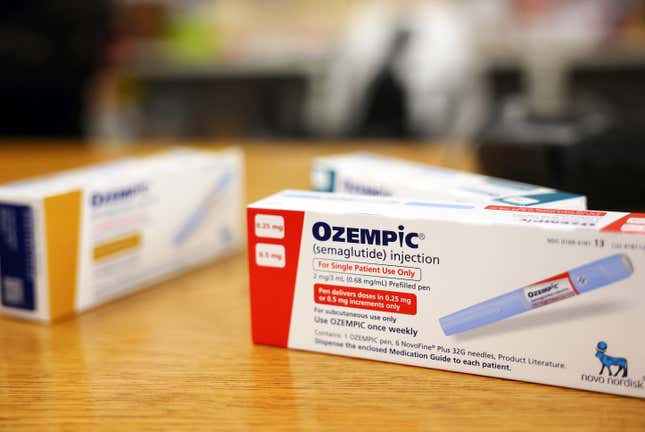
In This Story
The evidence is starting to pile up that Ozempic and other GLP-1 medications could help people with substance abuse disorders.
Investigators from the University of North Carolina presented results from a small study at the College on Problems of Drug Dependence’s annual meeting last weekend. Their research found that people with alcohol use disorder drank less after taking semaglutide — the active ingredient in Novo Nordisk’s Ozempic– compared with with people who took a placebo.
Professor Christian Hendershot, who led the trial, told Bloomberg that the drug’s effect was stronger than any approved medications for alcoholism. The study has not yet been published in a peer-reviewed journal.
These findings suggest that semaglutide could be a game changer for the over 46 million Americans battling a substance abuse disorder.
For GLP-1s to get regulatory approval to be used for addiction, larger studies that only Big Pharma can fund are still needed.
But for now, it seems like Big Pharma isn’t interested in pursuing this use of GLP-1s. Novo Nordisk is the only pharmaceutical company that is currently studying alcohol consumption, in a trial that examines semaglutide’s effect on liver damage.
Bloomberg’s Lisa Jarvis noted that there isn’t much money in treatments for addiction. The opioid and alcohol dependence treatment Vivitrol only made $400 million in sales last year.
Meanwhile, Morgan Stanley analysts anticipate the global market for GLP-1s, which are currently approved to treat diabetes and obesity, will reach $105 billion by 2030.
GLP-1s mimic a gut and brain hormone that suppresses appetite and helps stop cravings.
A recent survey from Morgan Stanley found that people using GLP-1 drugs — among them Ozempic, Wegovy, Mounjaro, and Zepbound — reduced their consumption of tobacco and alcohol while taking the medications.
About 56 to 62% of alcohol consumers on GLP-1s reported drinking less alcohol since starting the medications, with about 14-18% cutting their alcohol consumption entirely.